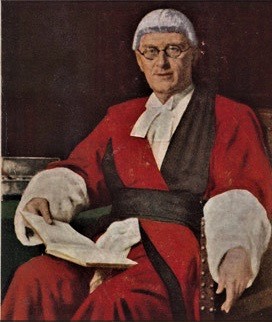Blog
Read All About It!
My last word in the matter. This IS a black mark on the legal profession

I asked a firm of solicitors to draft a pre-action protocol letter that an assistant Local Government Ombudsman said I should secure from a solicitor if I wished to call into question her decision.
She did not send me a template for that letter as the solicitors did when, at some length, they declined to do so and used their professional eminence to discredit it; they said that an action for judicial review would be “bound to fail” and professionally neither they nor I as a non-practising barrister should do so.
I have been arguing, not just with them, but with many members of the legal profession and those speaking on their behalf that my case was at least arguable. But this goes beyond that.
I now regard myself as a former barrister, but I can just recall that when I was called to the Bar my attention was directed to the advice given to all newly qualified barristers by Sir Norman Birkett, 1st Baron Birkett, Kt, PC, QC on their professional responsibility.
It is on public record in a speech he delivered to the Lawyers Club of Toronto on September 10th, 1947.
Erskine laid down the first rule with regard to the English advocate. “When the day comes” said Erskine in the course of, that magnificent defence, ‘when the day comes that the advocate in England is permitted to choose whom he will and whom he will not defend and becomes not the advocate but the judge in the cause, at that moment the liberties of the citizens of England are at an end.”
And that quality, the result of the unwritten law, that the advocate trained in the law to defend the citizen shall be available to the citizen, is one reason why the lawyer in England is unpopular. Why, it is said, does the lawyer affect views in which he does not believe? He puts forward to the court submissions which he may or may not think sound, but that is the role of the advocate. What the public will never understand is that the man who stands there to plead is not pleading his own view. He may be putting forward a view of which he profoundly disapproves, but he is putting forward for the client, the view of the client.
I cannot believe that this does not also apply to solicitors in a case such as this.
The citizen has responsibilities as well as rights. Some Human Rights lawyers stress rights but ignore responsibilities, especially their own.
And it cannot be a good thing that no-one in the profession, when given an opportunity to do so, asserts this along with the importance of doing all in their power to assert the right to protest and complain.
PLEASE SHARE THIS

Leave a Reply